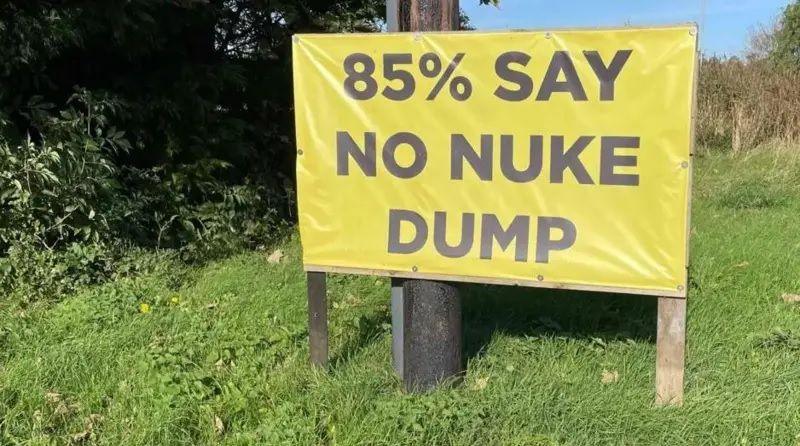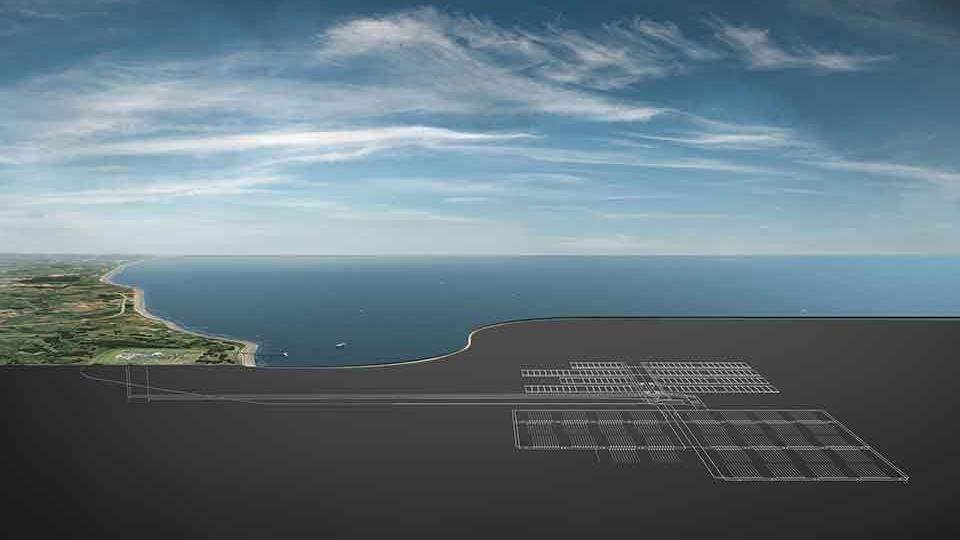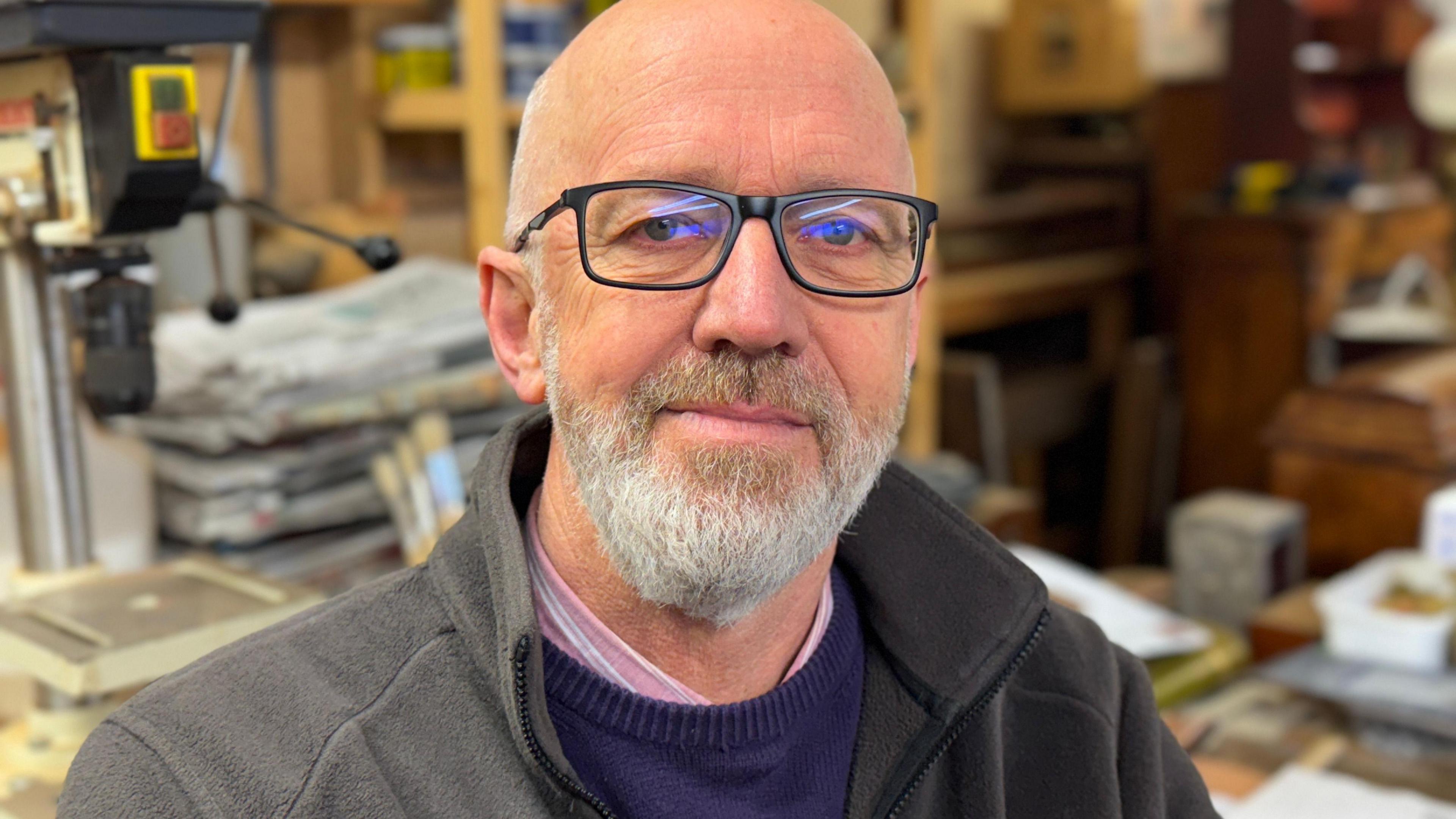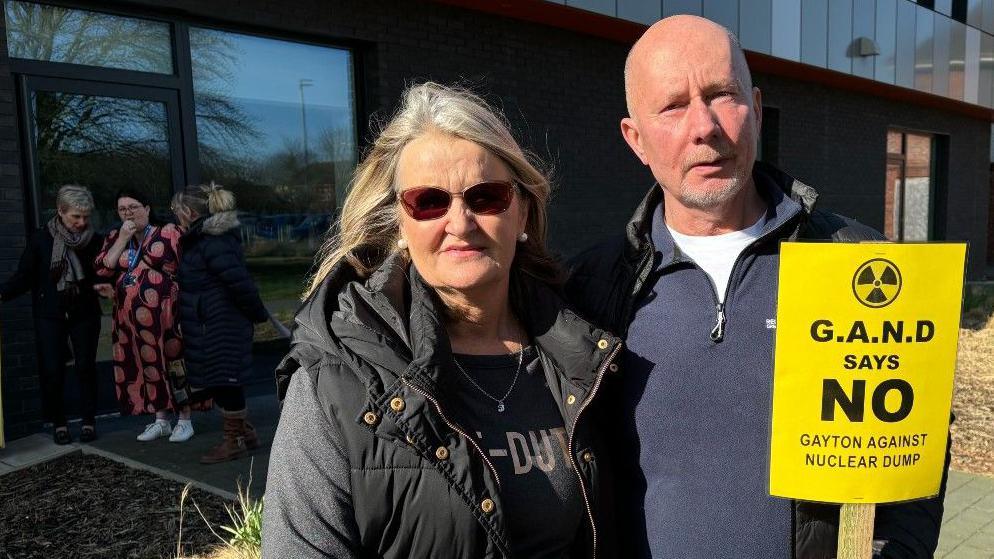Nuclear waste storage plan thrown out after vote

Councillors and members of the public celebrate outside County Offices, Lincoln, earlier
- Published
Lincolnshire will not be used to store nuclear waste after the county council voted to withdraw from the process.
Nuclear Waste Services (NWS), a government body, had earmarked an area near Louth, in East Lindsey, as a possible site for a Geological Disposal Facility (GDF).
Speaking after the vote to end the talks, council leader Sean Matthews said communities had been subjected to years of "distress and uncertainty".
NWS said it would take "immediate steps" to close down the consultation.
NWS originally earmarked the former Theddlethorpe gas terminal site, near Mablethorpe, for a storage facility.
A community partnership group was formed to open talks with local communities and councils.
The government body later announced it had moved the proposed location to land between Gayton le Marsh and Great Carlton.
Lincolnshire County Council today voted to follow East Lindsey District Council's decision to quit the partnership group.
It means that the project cannot progress in Lincolnshire because it does not have the required "community consent".
'Treated appallingly'
Matthews, who represents Reform UK, said the authority's former Conservative administration should "hang its head in shame" for allowing the process to continue for four years.
"I would like to apologise to the communities who have been treated appallingly," he said.
However, Conservative opposition leader Richard Davies said his party had "always listened to the community" and "led the charge to say no".
Mike Crooks, from the Guardians of the East Coast pressure group, which was set up to oppose the project, said the wait for a decision had left people "unable to go on with their lives".
"People haven't been able to sell their houses, to do whatever they want to do, to move on with their lives, so we are delighted they now can."
In a statement, Simon Hughes, NWS siting and communities director, said it had granted £2m to support local community projects which had "left a lasting positive legacy".

Lincolnshire residents have consistently opposed the plans
Analysis by Paul Murphy, BBC East Yorkshire and Lincolnshire Environment Correspondent.
For the sleepy coastal village of Theddlethorpe, the four year-long "conversation" about the disposal of radioactive material has been a source of anger, distress and bewilderment.
Not least because it has taken four years.
Many residents talk of their mental anguish.
This is largely a population of older people who retired to the coast for a bit of peace and quiet, not for a prolonged scrap with Britain's nuclear industry.
From day one there was fierce and vocal opposition to the plans.
I remember householders hanging plastic skeletons in their front gardens. Others just put up "for sale" signs.
That strong opposition grew, despite the promise from NWS of millions of pounds of investment, skilled jobs and transformative road and rail infrastructure.
Questions are being asked about how and why it took the county and district councils so long to reject the proposals when public opposition was being so powerfully expressed.
A similar nuclear disposal plan for East Yorkshire provoked similar furore and was kicked out by the local authority after just 28 days of public consultation.
The prospect of an underground nuclear disposal site in Lincolnshire appears to be dead and buried – unlike the UK's growing pile of toxic waste from nuclear power stations.
The problem of finding a permanent and safe home for this deadly material is no longer Lincolnshire's issue, but it hasn't gone away.
Listen to highlights from Lincolnshire on BBC Sounds, watch the latest episode of Look North or tell us about a story you think we should be covering here, external.
- Published29 May

- Published12 February

- Published7 March
